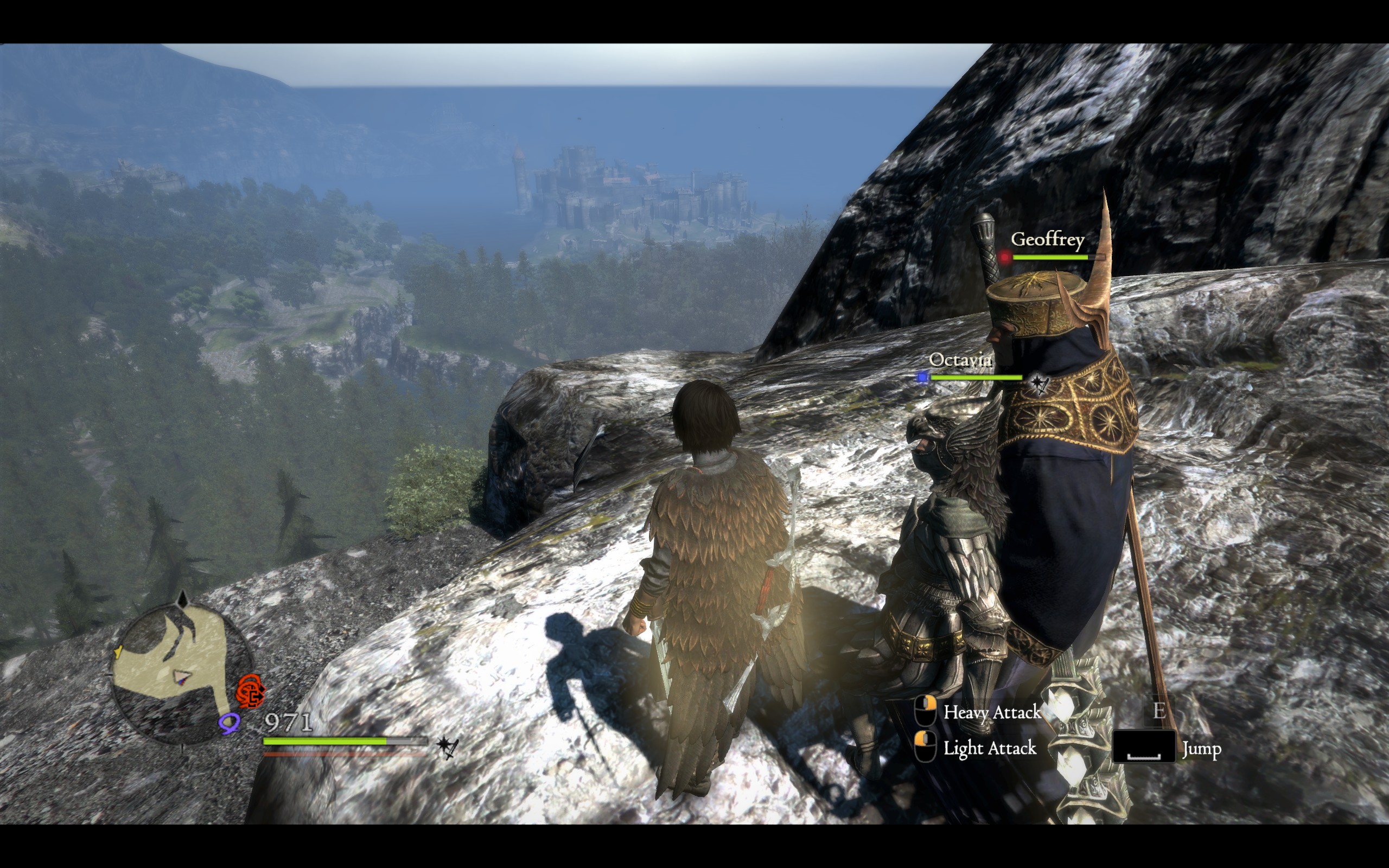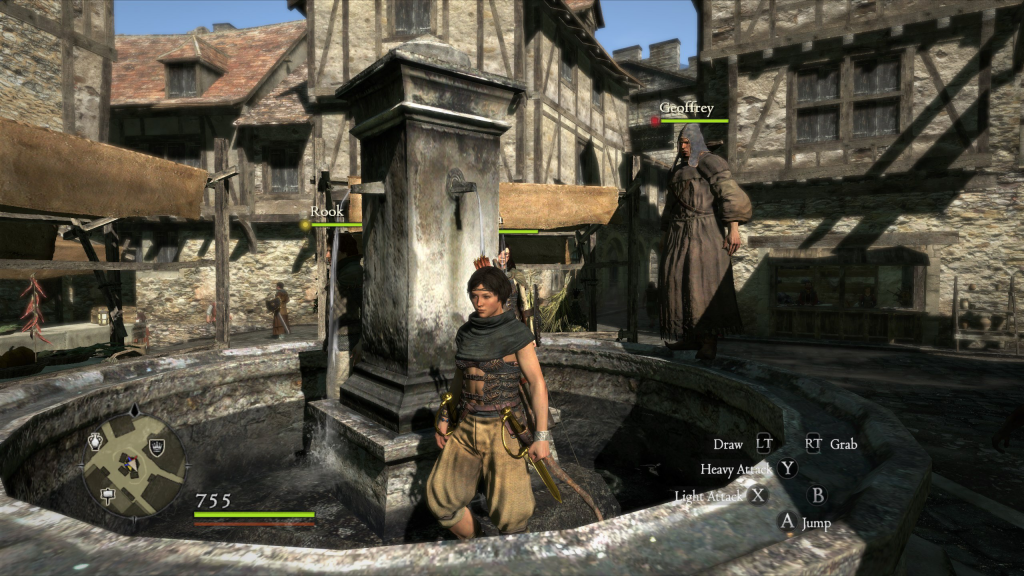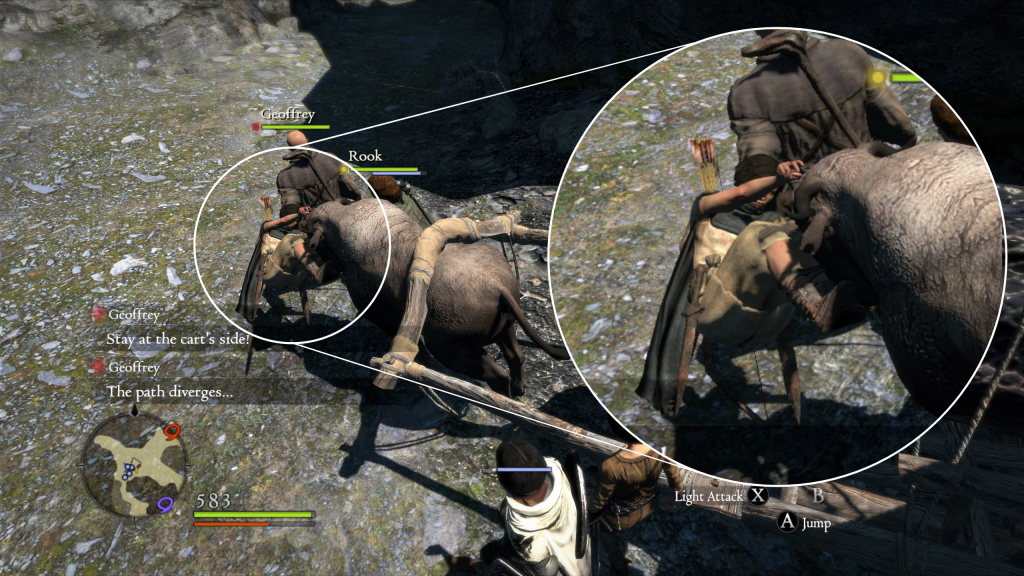
It's been a long time since I've been able to get invested in an open world action RPG. In the past few years, I've learned that their structure just doesn't work with my play style and attention span. So I tried to play Dragon's Dogma a couple of times this year, and I kept bouncing off.
But once I really sat down and committed to a couple-hour play session, it finally stuck. Gradually, two things became clear: why Dragon's Dogma is so unique and beloved by its fans, and what it is that I do like about open world action RPGs.
Worlds Collide
Right out of the gate, Dragon's Dogma has a familiar veneer of western fantasy RPG style and structure. There's a small starting town, and an open world to explore beyond it. Combat is action-oriented, real-time hacking and slashing, with some spellcasting and arrow-slinging options. Monsters emerge largely from Greek and European mythological canons. The world unfolds into a feudal kingdom, a collection of tiny settlements surrounded by deadly wilderness, crowned in the north by the looming walls of its huge capital city.
But despite Dragon's Dogma making a point of looking like a by-the-book, western fantasy game, it's also filled with offbeat ideas and systems. Rather than named followers, the player surrounds themselves with Pawns, a cadre of loyal knights built using the character creator. The player takes one Pawn that they craft themselves (mine was Geoffrey a gentle giant and healer). But they can also bring two more by hiring them asynchronously from other players. Most of the large monsters in the world can be climbed on and stabbed at, Shadow of the Colossus style. Parts of the wilderness are peppered with creatures that are too difficult to fight, constraining the player at earlier levels in an organic way.

Standing in a fountain with the homies
Around every corner, both literally and metaphorically, are odd twists on the typical formula or structure of this sort of game, and it does similar things narratively. It establishes a setting around medieval fantasy aesthetics and stock characters, but then repeatedly contextualizes JRPG tropes and story beats within it. Most of the time, this combination manages to make both component parts endearing and surprising. There's a rich tension in the variety of writing and game design styles, which produces something that feels offbeat and wholly unique.
Seeing the Seams
All of these contrasting details also helped me see what makes this style of game work for me: comedy. Dragon's Dogma has goofy climbing animations, the ability to pick up and throw any NPC around for no reason. It has followers that incessantly repeat the same phrases (it should be annoying but it's actually just extremely funny). It reminded me immediately of the jankiest parts of Skyrim, a game that I loved in 2011 but have looked back on pretty ambivalently. As epic as it sometimes tries to be, Skyrim's enduring cultural significance is largely due to its ragdolling horses and arrows to the knee. Unintended — or at least procedural — comedy is fundamentally part of its appeal.
Janky, expressive games like these are interesting because their seams are clearly visible. I could operate within the game by solemnly accepting this NPC's important task. Or, I could operate outside the game and Fus-Ro-Dah him off of a cliff to watch him ragdoll away. This creates a malleability to how seriously the game expects to be taken, and gives players a lot more space to express their own level of interest. It's neither quite as serious as The Witcher, nor as openly silly as GTA. Instead, it invites the player to move freely between role-playing and puppeteering. To reference a game criticism cliche, the prominent tonal seams of the game provide a sort of "anti-immersion". It asks that the player engage not just as a role-player, but at whatever mechanical, narrative, or metanarrative level they want.

You can climb and hang on most creatures, including this Ox
Within this framework, Dragon's Dogma excels at telling peculiar stories, delivering wild twists, and routinely inspiring awe and laughter alike; sometimes even in the same breath. Its ability to keep surprising and intriguing me (for forty or so hours) is a testament to its eccentricity and creativity — despite its deceptively familiar set dressing.